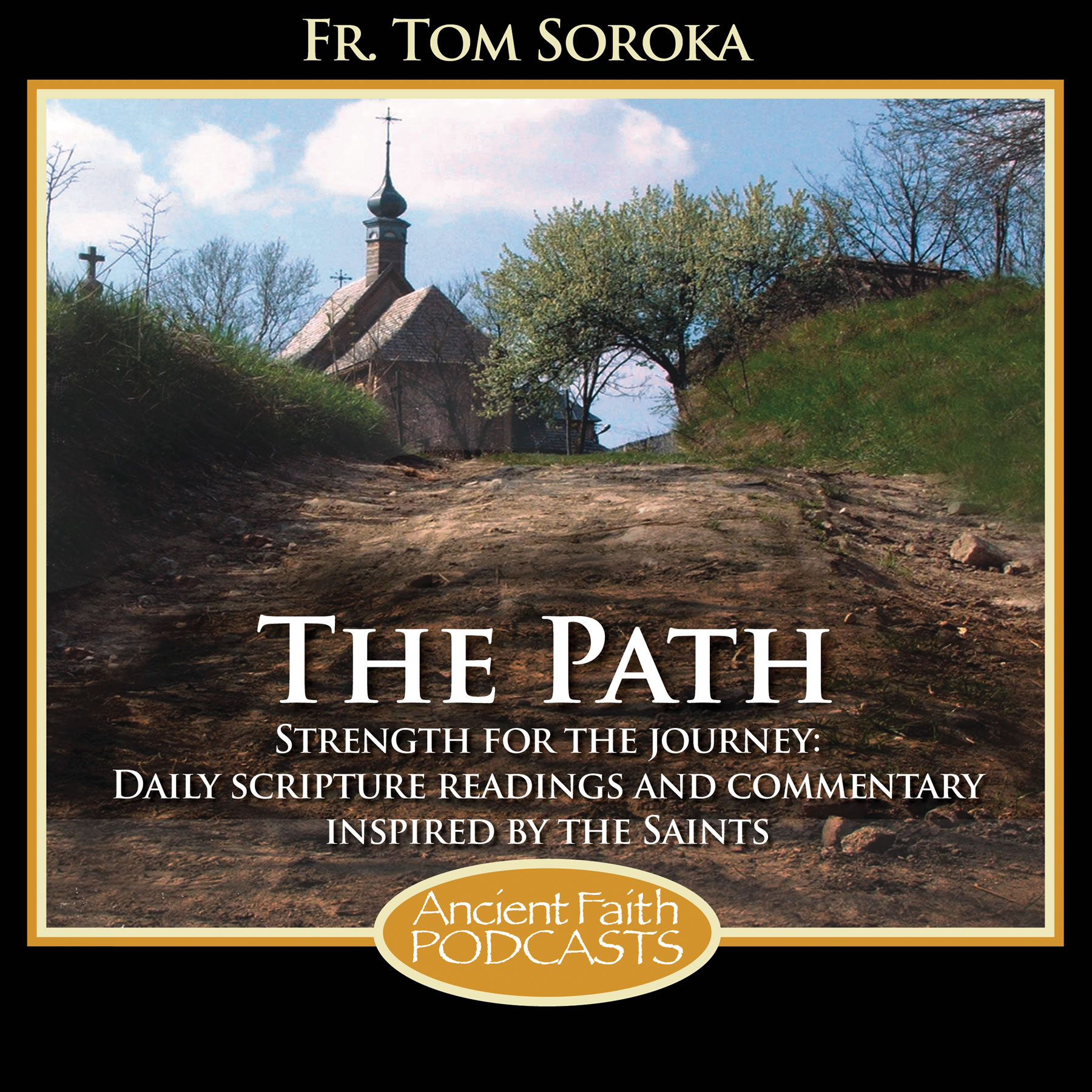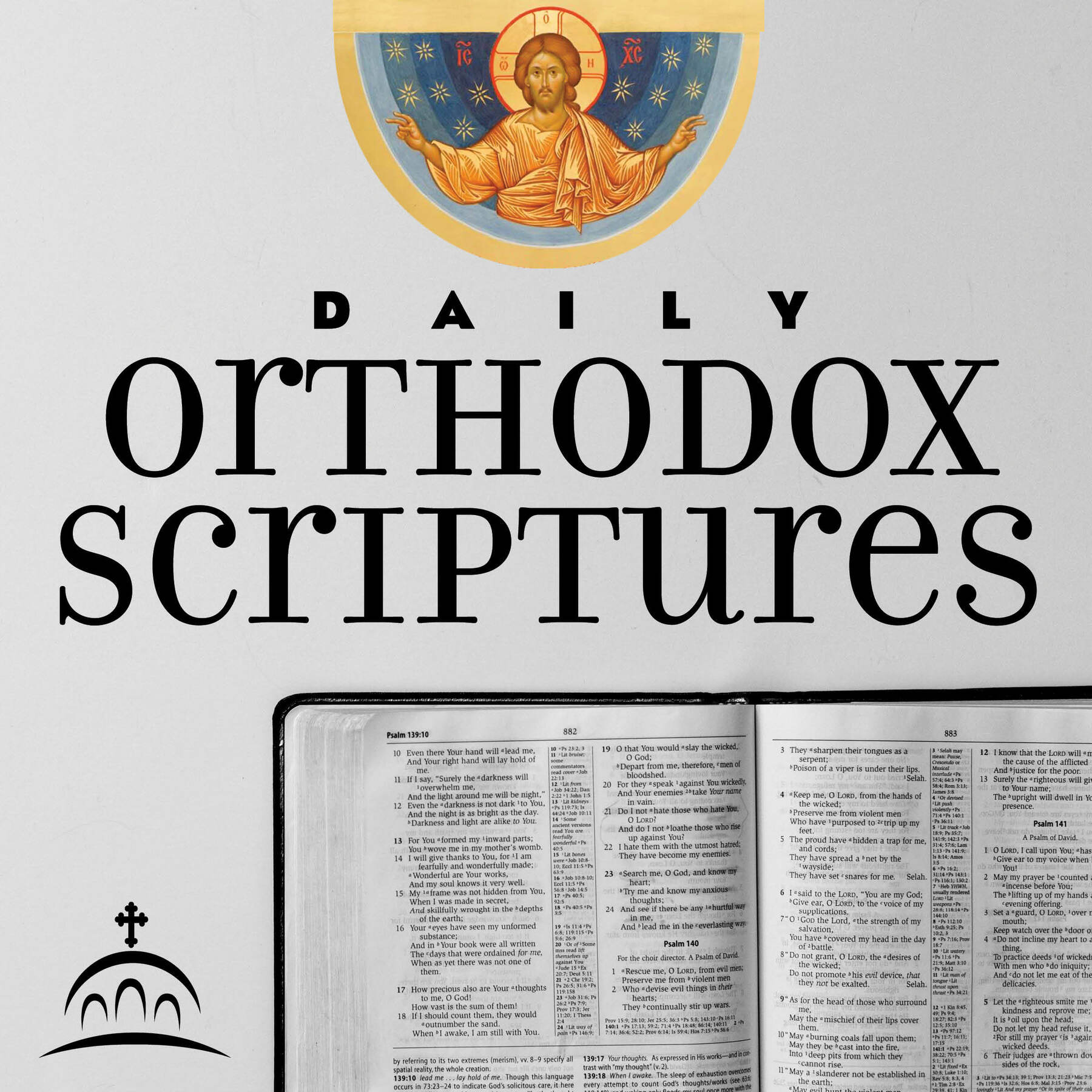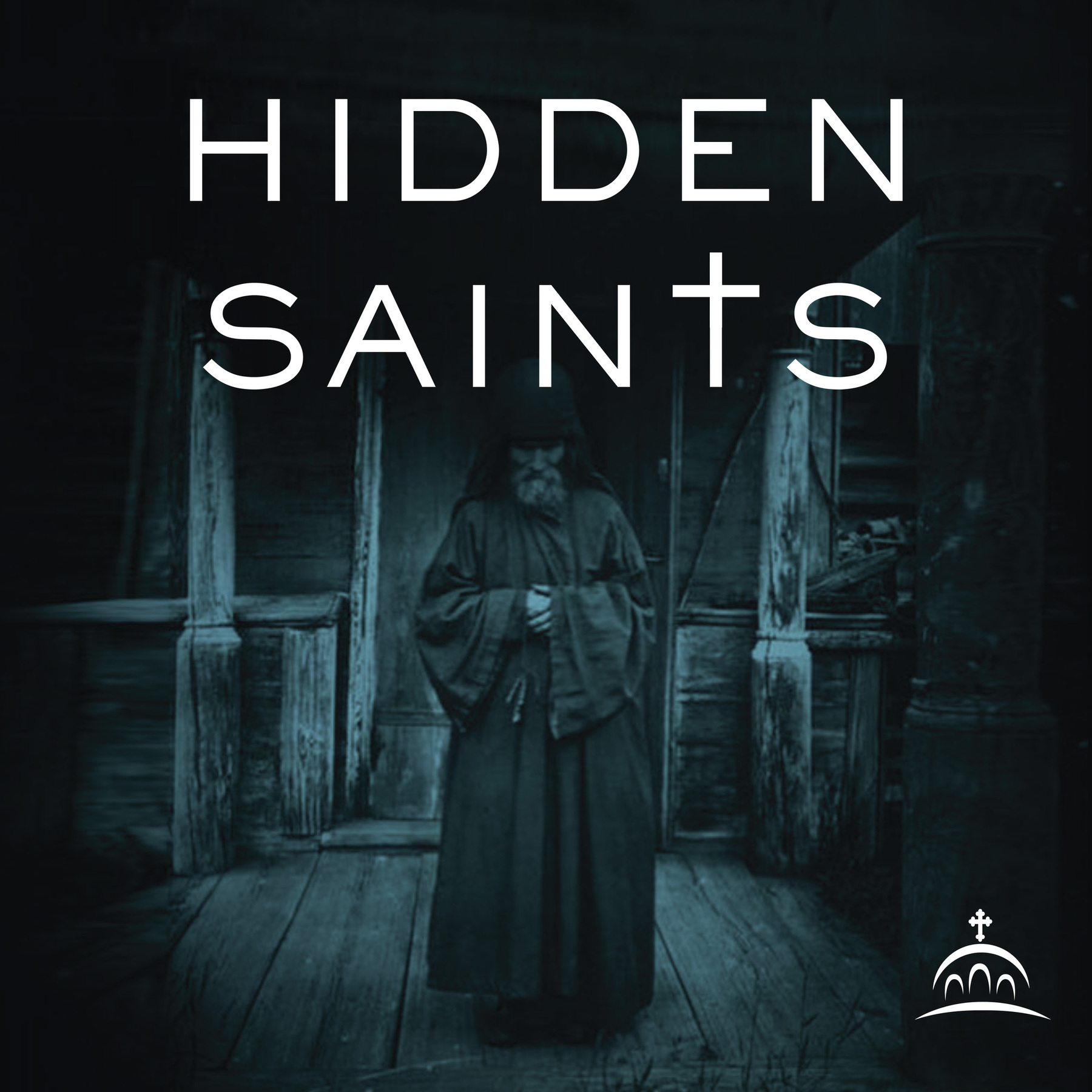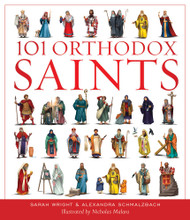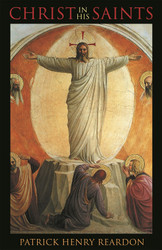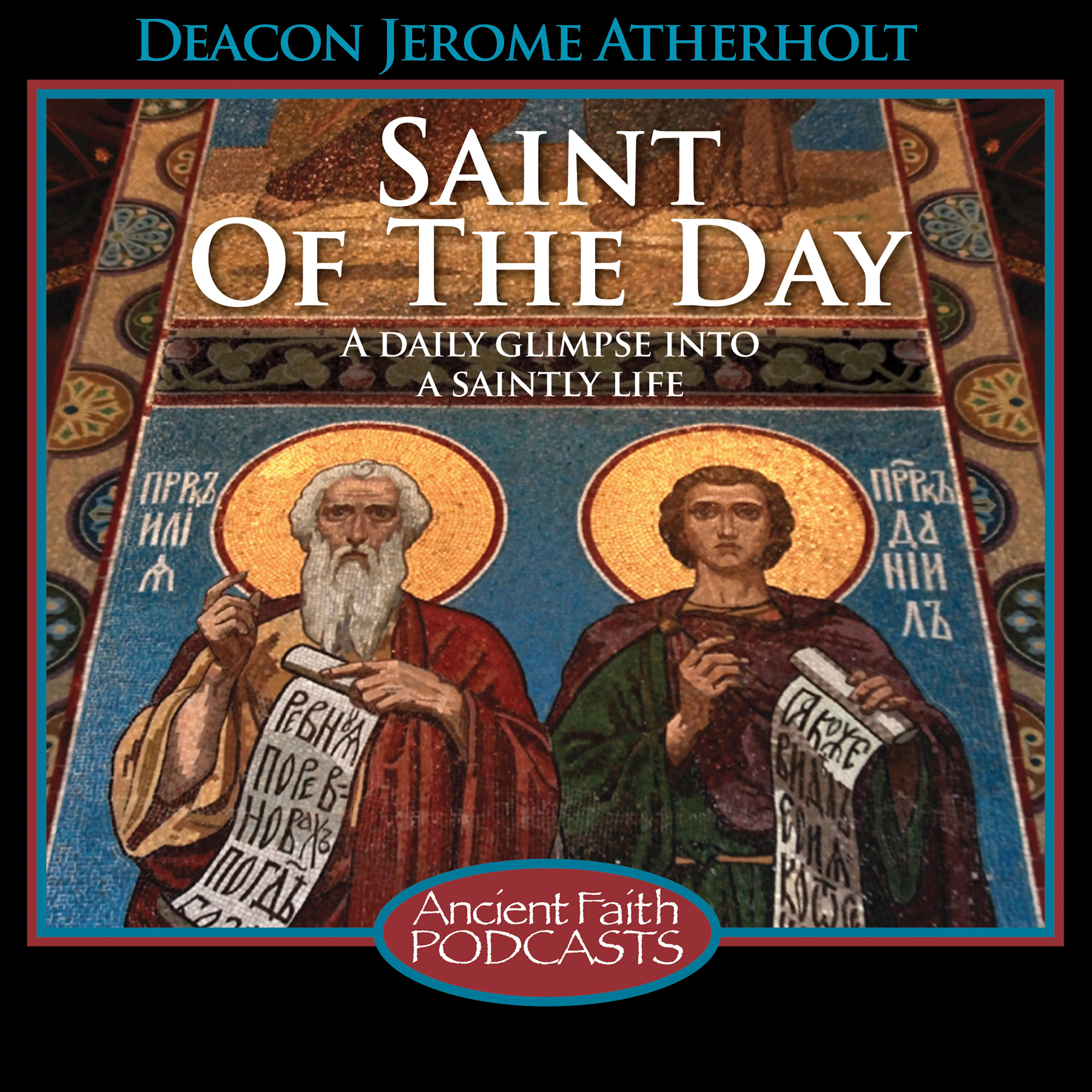
Saint of the Day
Daily Orthodox Saints
The Saint of the Day briefly tells the story of one of our venerable Saints we are commemorating for each day. It is heard eight times daily Monday—Friday, and is also available as a podcast. Our reader is a professional actor and an ordained Deacon in the Orthodox Church, Dn. Jerome Atherholt. Our source is www.abbamoses.com.
Support podcasts like this and more!
Donate Now
Sunday, May 19, 2024
Hieromartyr Patrick, bishop of Prusa, and three priests with him (3rd c?)
'Saint Patrick was Bishop of Prusa, a city in Bythinia (the present-day Brusa or Bursa). Because of his Christian faith, he was brought before Julius (or Julian) the Consul, who in his attempts to persuade Patrick to worship as he himself did, declared that thanks was owed to the gods for providing the hot springs welling up from the earth for the benefit of men. Saint Patrick answered that thanks for this was owed to our Lord Jesus Christ, and explained that when He, Who is God, created the earth, He made it with both fire and water, and the fire under the earth heats the water which wells up, producing hot springs; he then explained that there is another fire, which awaits the ungodly. Because of this, he was cast into the hot springs, but it was the soldiers who cast him in, and not he, who were harmed by the hot water. After this St Patrick was beheaded with the presbyters Acacius, Menander, and Polyaenus. Most likely this was during the reign of Diocletian (284-305).' (Great Horologion)
Saturday, May 18, 2024
Martyr Theodotus of Ancyra and seven virgin-martyrs with him (303)
Theodotus was a married inn-keeper in Ancyra during the persecutions of Diocletian. He used his inn-keeping trade as a means of secretly helping the persecuted Christians, many of whom used his inn as a refuge in time of need. One of his holy works was to retrieve the bodies of martyred Christians and give them burial. At that time, seven maidens were tried and tortured for their faith in Christ, then killed by being thrown into a lake. One of them, St Tecusa, appeared to St Theodotus and asked him to retrieve the bodies of her and her sisters in Christ. Under cover of night Theodotus, guided by an Angel, was able to find all seven bodies and bury them honorably. But a friend whom he had asked to help him in this work betrayed him, and he was arrested and subjected to cruel tortures. Finally he was sentenced to be beheaded. As he went to the block, he said to the many Christians who had gathered to weep for him: 'Do not weep for me, brethren, but glorify our Lord Jesus Christ, by whose aid I am finishing my course and overcoming the enemy.' A church dedicated to him was later built on the site of his burial.
Friday, May 17, 2024
Apostles Andronicus of the Seventy and his fellow-laborer Junia
Andronicus is counted as one of the Seventy. He and his fellow-worker Junia are mentioned by St Paul in his Epistle to the Romans: "Greet Andronicus and Junia, my kinsmen and fellow prisoners, who are of note among the Apostles, who also were in Christ before me" (Romans 16:7). Some, troubled that a woman is mentioned as an Apostle, have attempted to translate "Junia" as "Junias," a man's name; but the Fathers are united in treating her as "Junia." It may be that they were husband and wife, like Aquila and Priscilla (Acts 18), but the ancient witnesses do not tell us.
Andronicus became Bishop of Pannonia, but did not stay in one place, instead travelling throughout the world to proclaim the Gospel. Both Andronicus and Junia were granted the gift of wonder-working. Both of them suffered for Christ and were finally martyred.
Thursday, May 16, 2024
Blessed Musa the Maiden (5th c.)
"St Gregory the Dialogist relates of her that she was a mere nine years old when the most holy Mother of God appeared to her on two occasions, surrounded by virgins bathed in light. When Musa expressed her desire to be included in the resplendent company of the Queen of heaven, the Mother of God told her that she would come for her and take her within a month, outlining for her how she should spend those thirty days. On the twenty-fifth day, Musa took to her bed and on the thirtieth day the most pure and holy Mother again appeared to her, calling to her in a quiet voice, to which Musa replied: 'Here I am waiting, my Lady! I'm ready!', and she breathed forth her spirit. She passed from this life to life eternal in the fifth century." (Prologue)
Wednesday, May 15, 2024
St Pachomius the Great, founder of cenobitic monasticism (346) - May 15th
His name in his native Coptic, Pachom, means "eagle." He was an Egyptian pagan who entered the Roman army at a young age. While quartered at Thebes, he was amazed at the kindness of the local Christians, who brought food and drink to the soldiers. Learning who they were, he believed in Christ and vowed, once released from the army, to serve him for the rest of his life. At the end of his military service, he was baptised and became the disciple of the hermit Palamon, with whom he lived for ten years.
At a place called Tabennisis an angel appeared to him dressed in the robes of a monk and gave him a tablet on which was written a rule for a cenobitic monastery — one in which the brethren live communally rather than as hermits, something that had not been seen before among Christians. The angel commanded him to found such a monastery. Pachomius set to work, building many cells though there was no one to live there but himself and his brother John. When John questioned the unnecessary building, Pachomius only said that he was following God's command, without saying who would live there or when.
But soon men began to assemble there, and in time so many came to be his disciples that he eventually founded nine monasteries housing thousands of monks. The rule that he gave (or had been given) for these monasteries became the model for all communal Christian monasticism thereafter. St Pachomius reposed in 346, before his great Egyptian fellow-strugglers St Anthony the Great and St Athanasius the Great.
Entertaining angels unawares: Christian believers' simple acts of kindness toward their pagan oppressors may have seemed foolish to many, but it was such acts that opened the eyes of Pachomius to the light of Christ, and which bore incalculably great fruit: the founding of the monastic life which is still the backbone of Christ's Church.
Contributors
No contributors found.
